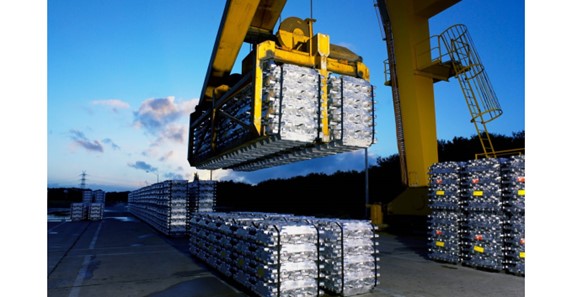German aluminum industry warns of production decline
Data for the German aluminum industry at the end of 2022 were disappointing as significant declines were recorded. Specifically, crude aluminum producers suffered a 19 percent year-on-year decline, as their production stood at 704,000 tons. The national total for the year was 3.3 million tons, a decrease of 11 percent.
Production of aluminum semi-finished products started slowly but the last quarter of last year showed a sharp drop, reducing production volume by 14 percent. In 2022, around 2.6 million tons (-4 percent) were produced. Manufacturers of rolled products (-4 percent) and extruded products (-3 percent) recorded approximately equally sharp declines.
AD president Rob van Gils emphasized: “In the last quarter, production in all areas fell even more sharply than before. Especially in the case of huts, it has literally collapsed. Unfortunately, we cannot say at this point that the worst is behind us. Companies’ order books are still clearly in the red. We do not expect a recovery until the second or third quarter at the earliest. However, aluminum has a future as an important processing material in Germany, but we need the right political conditions for this.”
A new measurement by the AD Association indicates that there is great concern regarding changes in the energy sector, despite the fact that this has led to some positive changes. Recent research conducted by AD showed that, although the situation in the energy markets had improved somewhat for two-thirds of the companies compared to about three months ago, 86% of them did not see signing long-term agreements to purchase service as a positive thing. The vast majority did not see the government incentives as something favorable to help them with the current problems, which is why many companies could not benefit from this planning.
Volker Van Gils, expressed his concern about the current situation and the need to invest in decarbonizing the industry. This is due to high energy prices in Germany and Europe, which have led to an international competitive disadvantage. In addition to this, he also expressed that access to existing taxes to regulate the price of energy may be too high and complex. This is why there is an urgent need to facilitate access to them. Goldman Sachs predicts that its price will not stabilize until 2025, when its price will be around US$3,500 per ton.














